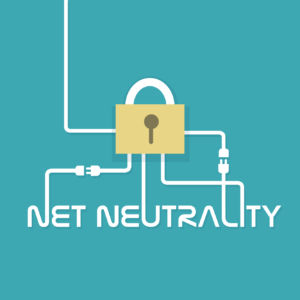Tuesday was the anniversary of the repeal of net neutrality, and advocates seized the opportunity to call on senators to pass the Save the Internet Act (which would restore net neutrality rules) while opponents of net neutrality celebrated the repeal, claiming it caused an increase in broadband investment.
“When I became Federal Communications Commission Chairman in January 2017, investment in our nation’s broadband networks had declined for two straight years,” FCC Chairman Ajit Pai said in a statement. “So we turned the page on the failed policies of the past and charted a new course. We focused on reducing unnecessary regulatory burdens and cutting red tape that discourages broadband deployment. …The latest evidence reaffirms that our policies are working. Today’s figures show that investment in our nation’s broadband networks rose in 2018 for a second straight year, with an estimated increase of $3 billion. We’re moving in the right direction.”
But at a Senate Commerce hearing Wednesday, net neutrality advocates like Free Press pushed back on Pai’s claim. Pai based his claim on US Telecom’s preliminary data regarding broadband investment, which is not adjusted for inflation.
US Telecom, a lobbying group for the telecom industry, also stated in its press release that the data is “preliminary.”
“Back to @AjitPaiFCC and broadband investment: the lobbyist numbers from @USTelecom he always cites are, in a word, garbage,” Free Press Vice President Matt Wood tweeted. “They don’t show their math or their baselines in terms of which ISPs’ are counted and which aren’t.”
Measuring the effect of net neutrality on broadband investment is difficult because net neutrality rules were never in effect very long — the Obama administration’s FCC passed the rules in 2015, and the Trump administration’s FCC promptly voted to repealed them in 2017 (then made official on June 11, 2018). Some economists suggest that broadband investment has followed an upward trajectory overall.
But that hasn’t stopped both sides from publishing studies to support their respective positions. No matter what the data says, net neutrality advocates keep pushing for restoration of the rules.
The pro-net neutrality group Fight for the Future held an all-day livestream discussing the importance of net neutrality and encouraging citizens to demand their senators vote for the Save the Internet Act. Democrat FCC commissioners Jessica Rosenworcel and Geoffrey Starks also tweeted their support for the bill.
“The @FCC decision to roll back #NetNeutrality went into effect a year ago today,” Rosenworcel tweeted. “But it’s not over. The American people are not done fighting for an open internet. I’m proud to stand with them in that fight. Let’s not stop until net neutrality is once again the law of the land.”
Senators Ed Markey (D-Mass.), Gary Peters (D-Mich.) and Ron Wyden (D-Ore.) also tweeted support for the bill and called on Senate Majority Leader Mitch McConnell (R-Ky.) to put the bill to a vote.
The Electronic Frontier Foundation also published a blog post claiming that if net neutrality rules were still in effect, the FCC could have cracked down on telecom and cable companies for failing to remedy extensive broadband outages in Florida following last fall’s hurricanes, and Verizon could have faced penalties for throttling a California fire department battling last year’s vicious wildfires.
But the bill didn’t make it to a vote.
“Republicans objected. They’d rather just bury this bipartisan bill in @SenateMajLdr McConnell’s legislative graveyard along with so many others,” Sen. Chuck Schumer (D-N.Y.) tweeted.
Some tech experts and economists say net neutrality advocates shouldn’t be so focused on ISPs since edge providers are more likely to violate net neutrality-type rules, like blocking, throttling and paid prioritization.
Frank Pasquale, a professor of law at the University of Maryland and a Big Tech critic, said at a Hoover Institution tech event that Silicon Valley pushes and funds the net neutrality movement because it benefits them and allows them to get away with the very practices net neutrality prohibits from ISPs.
According to Pasquale, Google originally advocated for net neutrality because Google “wanted assurance that internet service providers (ISPs) wouldn’t block or throttle traffic” for different websites.
Luther Lowe, senior vice president of public policy at Yelp, at that same event, accused Google of “siphoning” online traffic towards its own in-house products, technically a violation of net neutrality rules.
Despite the Senate’s refusal to vote on the bill, Fight for the Future, Common Cause, and other organizations say they’ll continue to fight for net neutrality. Mozilla sued the FCC over net neutrality, and the outcome of that court case could restore the net neutrality rules.
“The internet is becoming more centralized, corporate controlled, and less awesome,” Fight for the Future said in a blog post. “In the last year: Sprint throttled Skype, AT&T gave preference to its own video services, T-Mobile slowed down access to YouTube and Netflix. There will be a big decision in the federal court case sometime this summer. …Net neutrality is not dead yet.”

